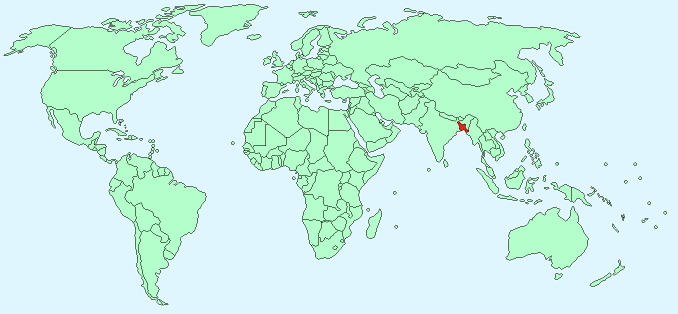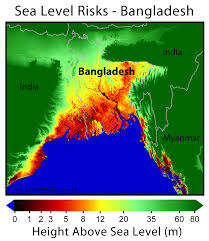kemalist type secular mentality of the political elites and the big neighbor from 3 sides is holding back Bangladesh.
@KediKesenFare
I was wondering when you'd show up. You had us worried.
BD's positive features:
• extremely homogeneous society
• single language
Not important. However, it is important that technical skills and knowlege are easily transferred. Did the Bengali nationalists made that a point?
And yet, a largely unskilled labor force.
Define 'good'? But other than that, no not really.
• no internal wars or rebellions
Wrong.
Additionally, rebellions and ethnic conflicts in neighboring countries do impact Bangladesh. They limit our ability to trade. Drafting FTA's are a distant thought.
• authoritarian leadership to implement much needed reforms regardless of public resistance
Really? And what 'reforms' would these be? In which ways did the public resisted these 'reforms'?
• no major natural disasters occurred
Not really important.
• access to the global markets via Indian Ocean
• big consumer markets like India, China, ASEAN in close proximity
• etc.
You have clearly everything that is needed to become another Asian success story, still BD falls short of expectations. But why exactly? Only professional opinions, please.
The neighborhood of Bangladesh is no ASEAN. We do not share a border with China. And India has never really been an attractive export destination for a myriad of reasons. But, they are a lot more advanced with many sources of income unlike ours.
People here say that corruption is a non- issue. This is both correct and incorrect at the same time. There will always be corruption in every government, but it is to be fought against at all times. When authority cannot be questioned, it becomes a problem. That being said, transparency and accountability are big issues within the government circles. This isn't only contained to the Awami League only (albiet more subtle), but previous governments as well. The trend of 'living off corruption' started with Ershad. After him, everbody started doing it.
Another thing is to do with the complicated and rigid exchange control regulations. It is of no surprise that Bangladesh have many laws that foreign investors will find funny. It is very difficult and even costly to transfer profits abroad. This is the main reason why Summit Power (where GE has 20% stake) has much of its corporate in Singapore. That, and when you have important information like Import Policy Order and Export Policy order all in Bengali does it not make Bangladesh a very attractive investment destination from overseas. Bangladesh does have skilled white collar labor, but they don't advertise this aspect. Much of it winds up going abroad as a result. ASEAN was a success because of investment from abroad. And not because of funny rules and dumb nationalism. Investors must be allowed to determine their own risks. And they need the information to do so and must be readily available from sources they can count on.
There are some issues in corporates too. After Samson H. Chowdhury's death, Square Group was left with a void which can never truly be replaced. Interestingly, along with India; Bangladesh is one of the few countries in the region to have its own phrmaceutical industry.
And yes, political instability had been a big factor. It is no secret that the ruling party had engaged in horrific acts of violence in the past. But now, it is trying to legitimize itself, even with utterly useless MP's. It is a big government. Yet, their student cadres remain a cause for concern.
In addition to everything else, I think Bangladesh is still suffering from the years of Pakistani domination and the 1971 war.
The Pakistani period was marked by the draining of capital, leadership, and brains from the East, resulting in comparative underdevelopment. In the 1971 war intellectuals and students were
targeted for execution, especially once it became clear that the war was nearly over and the Pakistani Army had lost.
The new state of Bangladesh had to think for itself with very little money in the till and even fewer ideas what to do. The surviving leadership unwisely chose then-popular socialism as the model for development, nationalizing the entire economy and thus destroying prospects for private capital investment at the very moment tax collections and foreign aid that could provide capital for nationalized projects were at an all-time low. So no development. The coups and assassinations of the following years didn't help, either. Only with the return of political stability and denationalizaton in the late 80s did Bangladesh start to take off, and from a very low level: it took until the early-1990s for Bangladesh to return to the same GDP per capita level as 1969, before the separation war.
Definitely. They left nothing in the east really. Even their defences were not up to the mark.
And yes, the coups were difinitely an issue. A country with many coups and dominated by the military can never truly progress.









